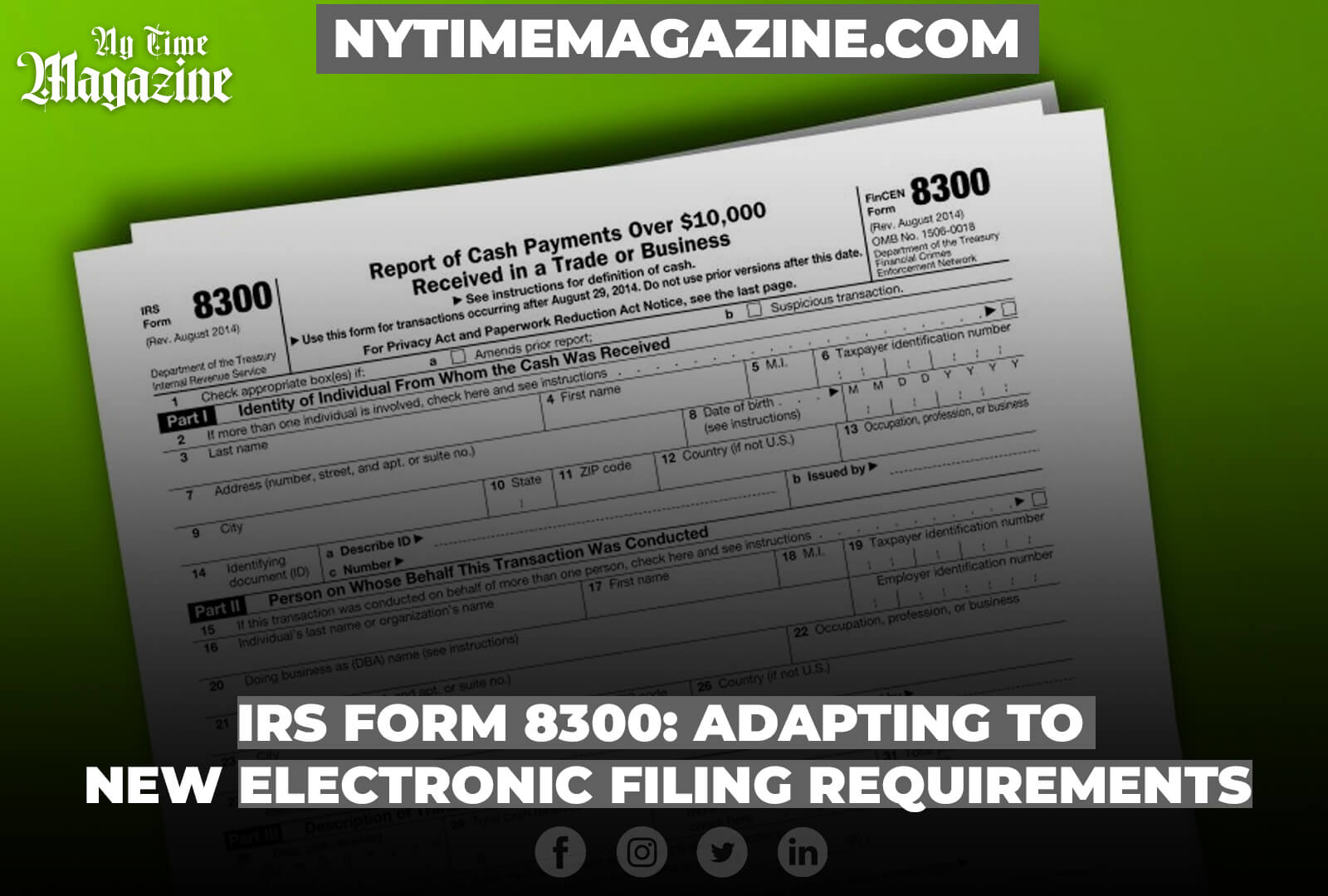In a significant move aimed at enhancing financial transparency and combating money laundering, the IRS Form 8300 has introduced a pivotal change that will directly impact businesses across the United States, particularly those engaged in substantial cash transactions. Effective from January 1, 2024, businesses conducting cash transactions exceeding $10,000 are now obligated to electronically submit Form 8300. In this article, we delve into the key aspects of this IRS mandate, shedding light on its implications for businesses and how they can adapt to these new requirements.
Contents
Understanding IRS Form 8300: Reporting Cash Payments
Form 8300, officially titled “Report of Cash Payments Over $10,000 Received in a Trade or Business,” serves as a vital tool in tracking significant cash transactions. Whether it involves the sale of products, provision of services, real estate transactions, or any other form of commerce, this form plays a crucial role in combating financial crimes, especially money laundering.
Who Needs to File?
Any entity, whether it’s an individual, corporation, partnership, sole proprietorship, or any other legal entity, receiving $10,000 or more in cash payments is mandated to fill out Form 8300. The completed form must be submitted within fifteen days of receiving the cash payment, failing which penalties for non-compliance may be levied.
Key Changes Effective from January 1, 2024
Electronic Filing Requirement: The most noteworthy change is the shift to electronic filing. Starting from January 1, 2024, businesses are now required to electronically file Form 8300 with the IRS for cash payments exceeding $10,000. This requirement applies if a business is mandated to file at least 10 other information returns excluding Form 8300, marking a departure from the previous paper filing option.
Increased Efficiency: The transition to electronic filing is geared towards streamlining the reporting process. By embracing electronic filing, businesses can expect enhanced efficiency, improved data accuracy, and a more effective monitoring system for large cash transactions.
Fines for Non-Compliance: Non-compliance with the electronic filing requirement may result in fines, the severity and frequency of which depend on the nature of the violation.
IRS Resources and Guidance: To facilitate the electronic filing process, the IRS provides resources and guidance, including access to the Financial Crimes Enforcement Network’s BSA Electronic Filing System (EFS). Businesses are encouraged to acquaint themselves with the EFS and ensure they meet all prerequisites for electronic filing.
Exemptions and Unique Circumstances: It’s essential to recognize that certain exemptions and unique circumstances may apply to specific transactions or businesses. Businesses uncertain about their reporting requirements should refer to IRS rules and consider consulting experts for clarification.
Why the Change?
The decision to transition to electronic filing for Form 8300 is underpinned by several crucial factors:
- Enhanced Monitoring: Electronic filing empowers the IRS to monitor cash transactions more efficiently, thereby reducing the risk of money laundering and other illicit activities.
- Data Accuracy: By minimizing errors inherent in paper-based submissions, electronic filing ensures more precise and reliable reporting.
- Efficiency: The streamlined reporting process simplifies compliance with tax requirements, making it easier for businesses to fulfill their obligations.
Conclusion IRS Form 8300:
Businesses operating in the United States must be aware of the recent IRS rule mandating the electronic submission of Form 8300 for cash transfers exceeding $10,000. This change underscores the IRS’s commitment to curbing financial crimes while enhancing the accuracy and effectiveness of cash transaction reporting. To ensure compliance and avoid fines, businesses are strongly advised to familiarize themselves with the new requirement and the electronic filing procedure well in advance of the January 1, 2024, implementation date. Seeking guidance from tax professionals can be invaluable in navigating these changes effectively and ensuring seamless adaptation to the evolving regulatory landscape.



